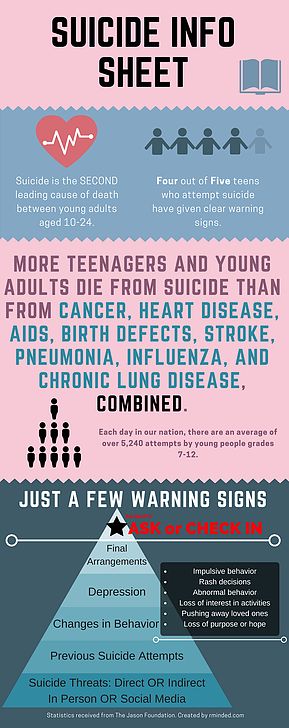ARTICLES, HEALTHY LIVING & WELL BEING. EATING DISORDERS
How I Cope With Mental Illness as a Busy Student


“I’m the busiest person I know,” I find myself telling others far too often, while a nervous smile covers my chronic stress. I find myself tense even in calm situations, forming knots the size of golf balls that parallel my spine.
- I’m a full-time student and a full-time mom of a Rottweiler/Golden Retriever puppy, who is the love of my life but doesn’t have an off-switch.
- I’m a full-time student and manager at a part-time job I love and work hard at.
- I’m a full-time student and a volunteer at a mental health crisis hotline, which has taught me more about mental health, suicide prevention, empathy, and stigma than anything else.
- I’m a full-time student and successful mental health blogger, with thousands of readers, income from a resource I offer used by therapists around the country, and a passion for writing about what I hope to make a difference in.
- Last, and definitely not least, I’m a full-time time student with full-time clinical anxiety and full-time clinical depression.
One may think that because I study Psychology, work in real-life mental health crises, and have a mental health website, that I have my own mental health all together. Considering the factors, it’s an easy assumption to make. However I’ve had my emotional breakdowns, crying spells on the floor, and compulsive habits; these and many other symptoms from my mental illnesses have proven to be challenging obstacles, along with the trials and tribulations that naturally come with life.
The titles and daily “hats” I wear aren’t listed above to brag or boast, rather I list them to give credibility to the free, widely-accessible, and scientifically-backed coping methods I use to manage my anxiety and depression as a busy student. One may also make the argument these coping methods may not help them because they don’t specifically have depression or anxiety, however I’d like to respectfully admit these coping methods help me with other mental illnesses I’ve dealt (or am dealing) with that I’m not comfortable sharing quite yet.
First, I’d like to show an infographic displaying suicide statistics from the United States. Remaining informed of warning signs and prevention techniques may help save lives of those around you, or even your own. This topic of suicide prevention is not only important to me because I am a crisis worker, it’s also important to me because I suffer from mental illness, just like many of the people who die by suicide each day.

2 Free, Easy, and Universally-Accessible Coping Methods for Mental Illness
1: Mindfulness
You probably have heard this term buzzing around the mental health community in recent years, and that’s because more and more studies are proving mindfulness to be a fantastic (if not the best) emotion regulation strategy. fMRI scans have shown the beneficial impact mindfulness has on emotion regulation, processing, and response, and numerous studies have been done proving its effect on well-being. So, what is mindfulness?
Mindfulness is being mentally and physically aware and non-judgmental/evaluative of the emotions and bodily sensations you feel/observe in the present moment. It’s pretty easy, all you have to do is pay attention to what emotions you currently feel, and try not to worry about the past or stress about the future! Stay in the moment, focus on what you feel (without being evaluative or judgmental), and just notice and acknowledge it.
You can practice mindful awareness any time of the day, at any place, doing anything!It’s definitely advised you find a place where you’re able to stay focused and present while observing all your sensations, however different people require different environments. Mindful meditation is another way you can practice mindfulness; similar to regular mindful awareness, mindful meditation can be lead by visual or auditory guides, or just require the same practices as meditation with a focus on remaining mindful. I use an app to help with this, it keeps my depressive-symptoms away by helping me not ruminate on negative thoughts or feelings, and it also helps me get ready to sleep at night. It’s called Stop, Breathe, & Think.
One study found mindfulness reduced depressive and stress-related symptoms, which are common symptoms throughout many mental illnesses. It’s important these studies don’t claim mindfulness “cures” any mental illness, because studies don’t prove anything, but merely provide support or evidence for/against an idea or theory. The impact mindfulness was proven to have in reducing mental illness symptoms is promising because treatment for mental illness is aimed at treating symptoms, not an “end-all cure”.
Here’s a good place to mention- I’m not a professional, and before making any changes regarding your health you should always consult a health professional if you have any concerns!
2. Journaling
I recently discovered ‘journaling’ isn’t actually a proper word, however, it’s commonly used and therefore I’m going to use it too (lol). Despite my colloquial confusion, note that keeping a journal also has scientific studies backing it’s efficacy towards improving mental health, just like mindfulness. Keeping a journal has helped me over the years, and while I shyly admit to neglecting my journaling practice more often than I should, I can’t deny the incredible impact it has had on my mental illnesses.
Writing in a journal technically “isn’t as easy as mindfulness”. First, you have to have a writing utensil and a medium to write on… Then you have to move your hand muscles in a way that translates abstract thoughts into concrete, lead-created words?? Impossible! (Hopefully, you can catch the sarcasm)
Writing in a journal is easy. It doesn’t require professional writing skills and you don’t have to sit down each night and complete a novel of your life story. Some nights, I make a short list of 5 things I am grateful for… and that’s it, that’s enough! If you’re unsure of where to start, try writing about how you currently feel, or about your day. You could even write a short list like I sometimes do of things/people you’re grateful for (it definitely helps with my depression).
There are plenty of journal prompts out there to guide you in mental illness recovery, and some even aid in treatment. On my website, there are two mental health journal guides that are specific to aiding in the treatment of depression and the treatment of anxiety. Therapists use these guides in group therapy, in individual therapy, and themselves, because sometimes the hardest way to start is figuring out what to write! The great thing about these guides is that they’re designed to help with your specific symptoms, either for depression or anxiety (although many help with both), and the guide gives you only one prompt a week, for a whole 52 weeks!
Why Coping Methods are Important
If you or someone you know suffers from mental illness, you know how hard the treatment and recovery process can be, especially without the use of coping methods. I have gone with and without them and can say from personal experience the difference is extremely noticeable. Having a busy schedule on top of a mental illness can seem like a death sentence. However, I’ve found it doesn’t have to be that way if you find the right coping methods, like mindfulness and journaling.
Suicide prevention is also made easier through the use of coping methods because people learn how to handle the intense emotions life can sometimes create. These coping methods, again, are especially important for those suffering from a mental health disorder, because suicidal thoughts can often be a symptom.
About the Author
Kay Uimari is a mental health blogger currently living on the central coast of California. She attends college as a Psychology major, works at a vintage boutique, volunteers at a mental health association, and still finds time to play with her 90+ pound puppy, Morty. Kay has suffered personally with mental illness and strives to support and inform others who suffer as well. She has written and published 2 successful mental health journal guides on her website and has collaborated with a number of mental health and psychology advocates. You can find out more about Kay and contact her on her site, listed below, or on her social media!
Website: www.rose-minded.com
Instagram: www.instagram.com/kayuimari
Pinterest: www.pinterest.com/kayuimari
Facebook: www.facebook.com/roseminded







